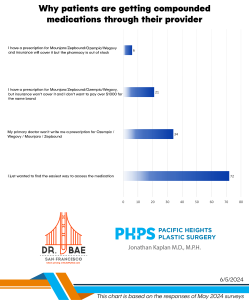
Maintenance of Certification (MOC) is a program put forth by specialty medical boards like the American Board of Internal Medicine (ABIM), American Board of Surgery (ABS) and American Board of Plastic Surgery (ABPS) to name just a few examples. The idea is for these programs to ensure that currently practicing physicians are up to date on the latest clinical data on the practice of medicine within their specialty. By keeping doctors well-informed, the hope is that this leads to greater patient safety. There is much dissension among physicians as to whether the formal MOC programs administered by the various specialty medical boards succeed in that goal.
Many argue this is just a way for specialty medical boards – when combined, make up the American Board of Medial Specialties (ABMS) or the American Osteopathic Association (AOA) – to increase revenue with annual MOC dues, tasks and exams.
These specialty boards require MOC as a prerequisite towards continued board certification. So rather than intermittent revenue only during the physician’s year of board recertification (approximately every 7-10 years), they can generate revenue on a continuous basis with MOC programs. For this reason, it is very easy to abhor the MOC programs along with their annual dues and busy-work.
What about CME’s
No one argues that doctors should remain current with the latest data in their field. But it’s unclear if MOC (with all of it’s unproven requirements) does this. Moreover, for a doctor to maintain their privileges or ability to remain on staff at a hospital or to renew their medical license from their respective state medical board, the physician must accumulate a minimum number of continuing medical education credits (CME).
But why aren’t CME’s enough? The Maintenance of Certification program has a CME requirement along with many other tasks but why not only require CME’s? Why all of the other tasks? In other words, if MOC and CME are both vehicles towards maintaining continuous education, then they’re duplicative of one another. So which is more critical?
The sine qua non (that without which is not) of practicing medicine is to maintain your state medical license. So if you MUST attend annual meetings and lectures to accumulate enough CME’s to maintain your MANDATORY medical license, then why must a physician also pay annual dues and complete tasks from their specialty medical board for MOC? The state medical boards aren’t requiring MOC. They only inquire about your board certification status.
If the specialty boards had the physician and the patient’s well being as a priority, they would recognize that the CME’s required to achieve continuous education and satisfy the state medical boards are enough. Does this prove that by continuing the onerous requirements of MOC, the specialty boards are simply maintaining their portfolio of cash and real estate?
Throw MOC out?
If you didn’t already strongly dislike MOC, do you now?! So if legislation was making its way through state houses across the country to abolish MOC, would you vote for it? Not so fast!
While the ridiculousness of MOC is clear in many circles, there is a trojan horse of sorts when attempting to throw them out legislatively. When abolishing Maintenance of Certification programs, but still maintaining requirements for continuing education by other methods, legislation can simultaneously weaken the meaning of board certification.
Board Certification
A physician’s board certification refers to the accomplishment of finishing training, passing many exams and “checking off many boxes” that show a doctor has seen a wide variety of disease processes and performed a minimum number of procedures within that specialty. As stated previously, these individual specialty boards compose the largest physician specialty certification organization of the ABMS and the AOA.
Physicians who are board certified in this “traditional” manner are understandably protective of their training and what it stands for. Whether it be out of principal or financial survival, these physicians resent other physicians who do not undergo this same level of training and then go on to practice outside of their primary field of medicine. A classic example in the realm of plastic surgery is a non-plastic surgeon (say, an emergency medicine physician) performing cosmetic procedures.
Surprisingly, there are no laws that forbid an ER physician from providing Botox or offering liposuction in their office. To be sure, a hospital won’t let an ER physician have privileges to offer liposuction within the confines of the hospital. But out of the hospital? In the doctor’s own office? State and Federal law will allow it.
Why anti-MOC legislation could weaken the meaning of Board Certification
Part of the anti-MOC laws that are being passed in state houses across the country have the intended or un-intended consequence of weakening what it traditionally means to be board certified. Put another way, if legislation is put forth that requires physicians to maintain continuous education, but not necessarily MOC programs required by specialty boards of the ASMS or AOA, then that opens the door for an alternative means of education by boards outside of the board-certification-duopoly of the ASMS and AOA. If alternative boards can administer continuing education programs without the same rigorous board certification process as the ASMS and AOA, then the credibility of the entire system is undermined. In other words, the appearance of alternative boards could “water down” what it means to be board certified. So you have a choice to make: down with MOC or up with board certification. Unfortunately it can’t be both.
Click here for the original blog post written by Dr. Kaplan for BuildMyBod.




